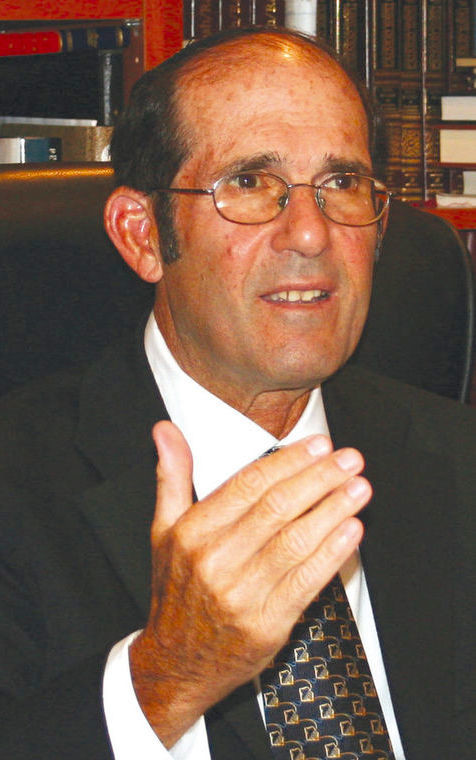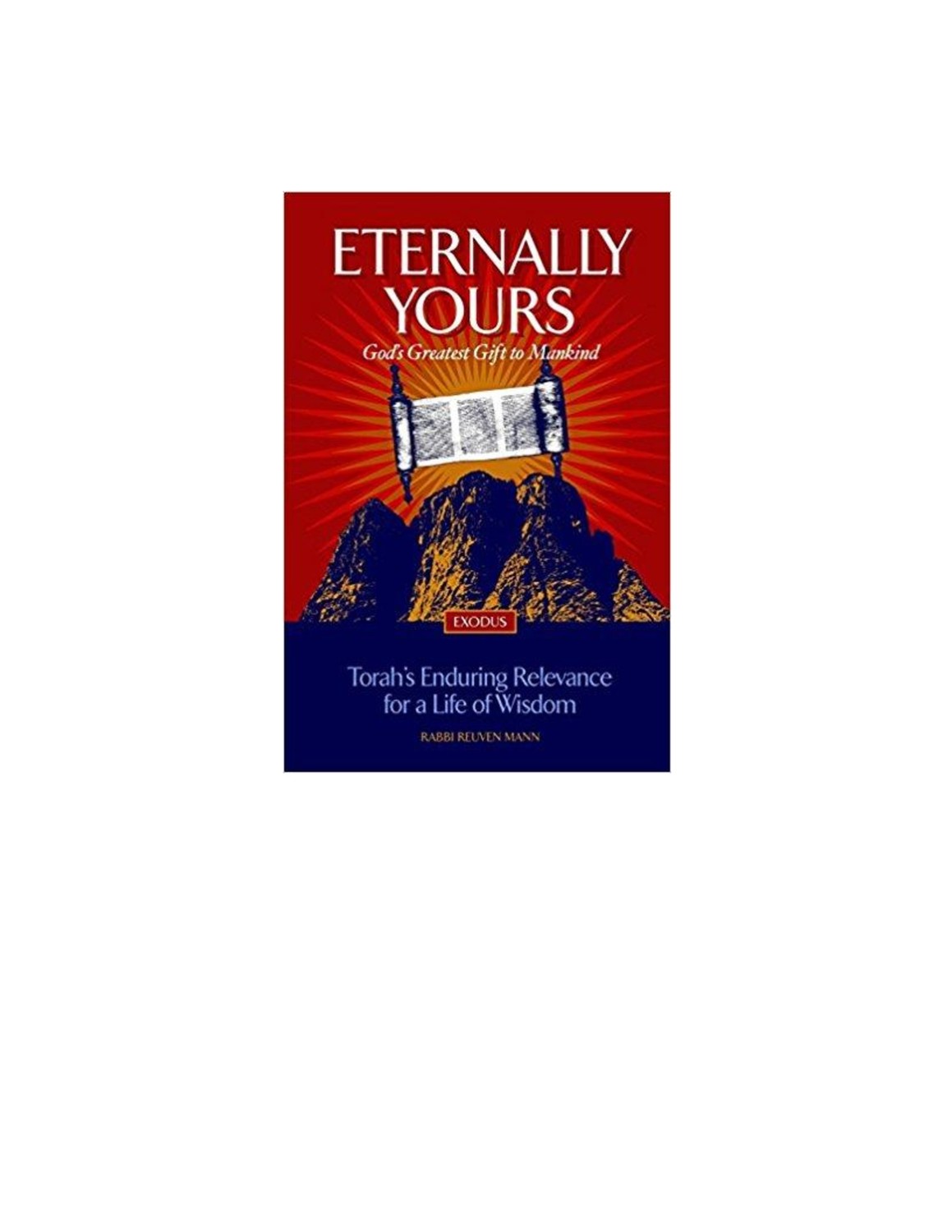The leadership of Moshe Rabbenu
Several months ago a longtime friend and neighbor from Borough Park, Rabbi Aharon Zeigler, brought to my attention the scholarship of Rabbi Reuven Mann, and of his then forthcoming book, “Eternally Yours: G-d’s Greatest Gift to Mankind,” a commentary on the Book of Exodus.
Rabbi Zeigler made note of the following:
“Rabbi Mann’s Divrei Torah are creative and thought-provoking. He takes the reader through the parsha, unfolding it with a deeper meaning, and concludes with a relevant lesson for this day and age. His writing style is fluent, clear, and precise. This important contribution to contemporary Jewish thought and practice would be a valuable addition to any Jewish library, rabbi and layman alike.”
Rabbi Mann founded Yeshiva B’nei Torah in Far Rockaway with Rabbi Yisroel Chait in 1971 and served as its menahel and maggid shiur for over 40 years. He also founded the Masoret Institute for Advanced Jewish Studies with Rabbi Daniel Rosenthal in 1993. For over 25 years he was to serve as the rabbi of the Jewish Community Center of Inwood and, more recently, as the rabbi of Rinal Yisrael in Plainview, and currently as the rabbi of the Young Israel of Phoenix, Arizona.
With the upcoming festival of Pesach in mind, I chose for your edification an essay dealing with the leading personality of the exodus, titled, “The Leadership of Moshe Rabbenu” that deals with the miracles during the crossing of the Sea of Reeds and of the circumstances that tested the leadership that Moshe exercised at this point during the exodus.
By Rabbi Reuven Mann
In parshat Beshalach, the Jews were seized by panic when they saw the Egyptian army chasing after them, and they turned against Moshe. Their fear was so great that they chastised him for taking them out of Egypt and even claimed that it would have been better for them “to be slaves in Egypt than to die in the wilderness.”
We can learn a great deal from the reaction of Moshe Rabbenu to this shameful provocation. He did not get angry; he retained his calmness and composure. With the Jews on the verge of a complete meltdown, Moshe encouraged them to stand firm and witness the salvation that Hashem would bring them. Moshe concluded his brief oration with a simple but effective admonition: “Hashem will battle for you and you be silent.”
Moshe’s behavior in this crisis reflects the qualities of a great leader. In general, even superior, idealistic leaders suffer from a certain vulnerability: the fear of rejection. There is hardly a person who is not affected by harsh criticism. Thus, the science of gauging public opinion has become indispensable to contemporary politicians. Political campaigns are planned with great care and positions taken by candidates are thoroughly tested for public reaction before they are adopted. Even courageous and independent-minded leaders can lose their “cool” when they are accused of bringing great harm upon their people.
Golda Meir, the late prime minister of Israel, felt terrible about her responsibility for the catastrophic consequences of allowing Egypt to get in the first blow in the Yom Kippur War. Her grief was so intense that she even considered suicide, but, to her great credit, recognized the impact it would have on the soldiers’ morale and decided against it. Menachem Begin spent the last years of his life in a state of withdrawal and depression. There were many causes but clearly the unpopularity of the War in Lebanon and the universal condemnation for the Sabra and Shaltila massacre (which was carried out by Arabs against Arabs and was blamed on Israel) played a significant role.
Moshe Rabbenu was the greatest leader in history. No one ever accomplished more for his people than Moshe, who led the Jews out of Egypt, brought them the Torah and forged them into a nation. Yet Moshe was viciously provoked and personally attacked to the point where he said, “Just a bit more and they will kill me.” Moshe recognized the dangers and pitfalls of leadership and had pleaded with Hashem to be spared that responsibility. His greatest qualification was his lack of ego, which is precisely what attracts ordinary people to positions of power. Often, the very desire for power is rooted in the need of the human ego to be nurtured by the approval of others.
As parents, teachers and spiritual guides, we all are leaders in some sense of the term. Moshe Rabbenu was successful because he was not in search of human recognition. He was absolutely committed to doing what was best for the nation, as dictated by Hashem. His faith in Hashem was absolute and this alone gave him the strength to act despite the disparagement of mortals.
May we seek to emulate the example of Moshe. May the Jewish people merit to have spiritual and political leaders who eschew public acclaim and bravely battle for the genuine interests of Klal Yisrael, whether popular or not.
FOR YOUR FURTHER STUDY
I would like to briefly bring to your attention two essays related to the theme of Moshe’s leadership.
The first is from the commentary in Rav Avraham Yitzchak Kook’s anthology on the parsha entitled, “Rav Kook Torah,” the chapter dealing with “The Leadership of Moses” by Rabbi Chanan Morrison.
The second essay is titled, “The Servant of G-d” by Rabbi Moshe Hecht, who looks into the depth of leadership exercised by Moshe under the most trying of circumstances. Among the citations included is by Rabbi Yisrael Chait, who according to Rabbi Hecht “explained that Moshe Rabbenu was fully involved in what would be considered the Torah study of his era. This is what truly occupied his time as a shepherd and thereby, he was able to serve G-d most significantly and in a private manner. He simply wanted to maintain this service and was not interested in the more public service of leading the nation out of Egypt.”

 46.0°,
Light Drizzle
46.0°,
Light Drizzle 







